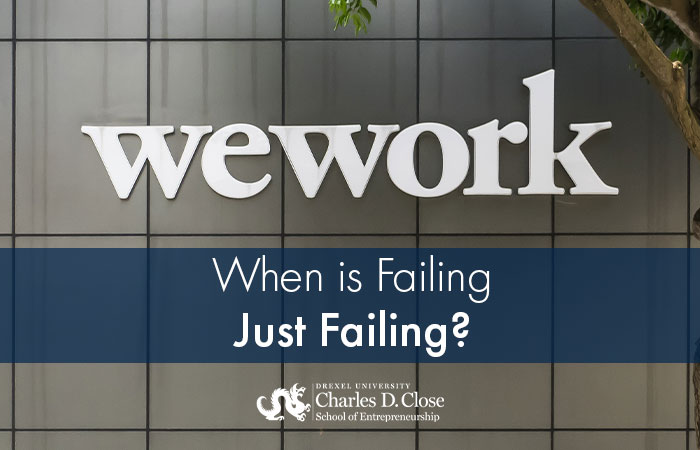January 22, 2020
“WHEN IS FAILING, JUST FAILING?”
The New York Times recently published an article called “Adam Neumann and the Art of Failing Up”. In their words, “WeWork’s chief risk-taker found a kindred spirit with an open checkbook: SoftBank’s Masayoshi Son. Now he’s walking away from the wreckage with more than $1 billion.”
At the Charles D. Close School, we profess entrepreneurial values such as risk-taking and learning from failure, but the WeWork situation begs the question, when is failing, just failing? Doc Parghi, Partner at SRI Capital LLC and advisor to the Charles D. Close School, helps us answer this question and explore more deeply the meteoric rise and fall of WeWork’s CEO, Adam Neumann.
Close School:
In the eyes of a Venture Capitalist, what made Adam Neumann such an attractive investment?
Parghi:
“Neumann is very high energy. He has charisma, vision and he was going to disrupt a (sort of) new concept.”
Close School:
When reading about WeWork, although it is a real estate play, it is always appearing in the same columns as big tech companies. Why is this?
Parghi:
“Neumann was brilliant in convincing people that was the case. Tech companies are higher valued… convincing early investors that it’s a tech business seemed to have boosted the value of the company. In his eyes, ‘It’s a real estate business, but it’s really a tech play’. You’re backing the entrepreneur when you’re an investor. You’re backing the vision.”
Close School:
In retrospect, when you are looking at the case of WeWork, were there any red flags?
Parghi:
“Blitzkrieg growth… too much, too fast, and too much supply. It didn’t make sense. How is this sustainable, I was thinking? All they are doing is renting space and then acting like any other real estate broker. Looking further into the model… For startups, once you have 15 people it’s too expensive. One or two desks are doable, but once you reach a certain mass of workers, it’s too much money to rent space from WeWork.”
Close School:
What can young entrepreneurs learn from Neumann both positively and negatively?
Parghi:
“First, see how they told their story and how clear their vision was. He knew all of the buzzwords, he knew what the investors wanted to hear. Second, don’t get caught up in your own success, be real to yourself. He wanted to be the world’s first Trillionaire. It is healthy to dream, but unrealistic public aspirations like this will drive someone mad. Third, learn his vision, packaging, scale and techniques, but always be thinking about how to grow into valuation. Ask yourself, is this sustainable? Be confident, you have to have ego, but at the same time, you have to have humility.”






